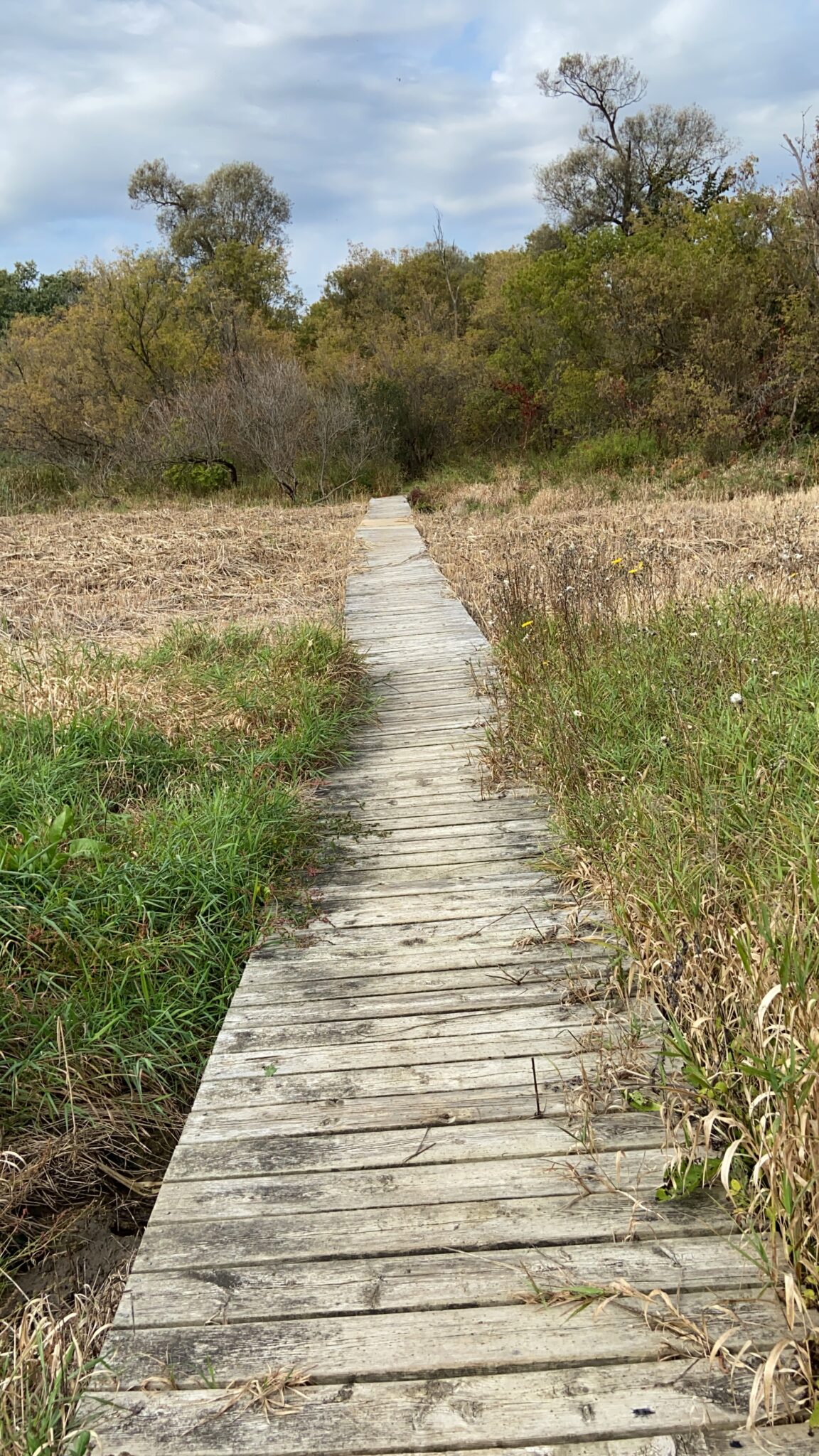Posts Tagged ‘Support’
Shannon – Enough
Shannon – Enough
Shannon talks about us all doing the very best we can from the perspectives of a licensed clinical counselor and losing her husband to suicide.
Cara – The real issues for grieving people with intellectual disabilities
Cara – The real issues for grieving people with intellectual disabilities
Cara provides some context for the real issue of grief in the lives of people with intellectual disabilities and those supporting them, including that we consider that there’s not a lot of education or information out there about how best to support someone with an intellectual disability who is grieving.
Cara – My story with intellectual disabilities and grief
Cara – My story with intellectual disabilities and grief
Cara talks about how she came to see how people with intellectual disabilities need to be supported in grief
Grief and Parenting in the Disability Community
By Carrie Batt, Grief Educator
Parenting is complicated as it has so many twists and turns. There are a variety of parenting styles such as hovering, free and easy, and everything in between. The one thing parents have in common is the fact that parenting never ends, thought it changes. Many parents can look forward to their child changing as they age and gain independence. Parents often look forward to and are proud of their child leaving the nest. Yet for many parents with children who have developmental disabilities, that is not the case. These parents must offer unwavering support, care, and guidance to their child or children who live with disabilities.
These are parents who are relied on in various ways, being the primary caregiver and managing everything. Some parents aging into their 70s, 80s, and 90s remain the sole primary caregiver to their child. Their day-to-day parenting tasks have never ended as their child has grown into adulthood. In fact, for some, their parenting roles increase as their child ages and may begin to lose daily living skills, develop early-stage dementia, show signs of aging or illness, begin to regress in specific areas or require much more support. Some parents must also cope with the fact that their child may be experiencing mental health issues in combination with a developmental disability. This is a most unique parenting experience as it is all-consuming. Such parenting speaks to a level of commitment and unconditional love where unwavering support is a constant.
In conjunction with these realities, there are times when such parents become a part of the end-of-life and palliative care communities. Once their child with a disability is diagnosed with a life-limiting illness, the only choice is to navigate end-of-life care, and there is no road map for what these parents will be embarking on. When it comes to death, dying and disability there is no education or expertise readily available. The same is true for grief, loss, and disability. Currently there are few disability-sensitive supports for such families who are having to transition from being the primary care giver to preparing for the impending death of their child.
The grief surrounding these realities have yet to be spoken of or integrated into the bereavement services and are rarely acknowledged within the developmental sector. The same is true of the reality faced when a child with a disability must face to mortality of their parents and primary caregivers, as for many of these children they may never have left the family home.
This is a type of grief most cannot imagine. This type of grief has not yet been recognized, validated, and honoured. There has been no space made within our grief support services that speaks of the magnitude of the grief surrounding these families. My hope is that the light can shine to meet these needs in the developmental sector for the families we serve.
Grief and Disability: Carrie’s Story
By Carrie Batt, Grief Educator
My son says I am a mover and a shaker. He tells his friends that because of my extensive travels abroad and my volunteering. When his friends ask: “Why did she do that?” he always tells them “Because my mom believes that ‘anything is possible’.” As I look back on my journey, I know where I picked up this motto. When my baby brother was born, the doctors told my parents: “he will not walk, talk, nor know who you are”. From that day on my parents embodied that motto ‘anything is possible’ and in the end my brother does far more than walk and talk. This circumstance introduced me to the disability community knowing that people with disabilities deserve and can do more. Interestingly, I have had the privilege of working within the developmental sector in a variety of positions for more than thirty years.
In 2018, I added to my parents’ motto ‘anything is possible’ and included ‘everyone is worth it’. I added those words to the motto right after I had attended a kintsugi workshop offered by Rami Shami, a prominent member within the deathcare community. As soon as I realized that Rami had spent the last 30 years caring for the dying. I inquired about his experience in death, dying and disability. Rami unfortunately, had no experience in supporting people with a disability who were dying. Upon learning about the sheer lack of support and expertise on this topic, I proceeded to complete the end-of-life training with Beyond Yonder Community Deathcare program. Soon after, SEOL Care was created, which offers a disability-sensitive approach to death, dying, and disability.
It has become clear to me over time that we have much work to do to ensure the delivery of disability-sensitive grief literacy and grief support. In March of 2022 my proposal for four 1-hour sessions was approved, we provided the program for 20 participants. My heart was full in each session.
My heart remains full of hope that conversations, education, and expertise about disability sensitive end of life care and grief support will gain momentum as more and more people join in on this vital conversation.
Currently, there are several rays of hope that suggest grief education and support can and will be offered in a more inclusive way. As a certified grief educator, I now offer online disability-sensitive grief support services for individuals and groups. My employer is offering disability-sensitive grief literacy sessions. The Bereavement Ontario Network has shared information through their newsletter and in a network webinar, where the gentleman I support and I were the guest speakers. Bereaved Families of Ontario have been receiving multiple requests to provide grief resources for the neurodivergent community. Additionally, Bereaved Families of Ontario are seeking out speakers with lived experience related to grief and under-represented communities for their grief literacy series. I remain grateful knowing that these are hopeful times, and these examples are a positive step in the right direction.
Birthdays, Anniversaries, and Other Special Days
Rachel Herrington – Social Service Worker Graduate, Third Year Psychology Student, Equal Rights and Community Advocate
It has been 10 years since my grandmother passed away and it never fails, every year leading up to her birthday I spend weeks with a pit of sadness and remorse in my stomach. I spend my days feeling this way and not understanding why then something makes the date catch my eye and it hits – It’s her birthday.
When we are grieving, some days are more difficult than others. Grief comes in waves like the sea and can feel like an intertwining labyrinth of emotions. Birthdays, anniversaries, and special dates that are associated with our loved one who has died can contribute to more emotionally intense days which can be worsened through the anticipation and “what ifs” of the upcoming day. These difficult days can leave us feeling defeated and it can almost feel like we’ve taken two steps backward in our grieving process, but grief does not have a timeline, and these feelings of setbacks are opportunities for healing.
Before the Day:
Communicate and set boundaries with others – think about how you want to approach the day and share your wants, needs, and desires with others. Clearly communicating your wants and needs with others will allow the opportunity for you to set the expectation for the day which can help relieve the intense feelings of anticipation.
Remember there is no right or wrong way to celebrate special days – It is important to remember that there is no right or wrong way to grieve and there is no written code or rule on how these special days are to be approached. However you decide to approach the day is the right way.
On the Day:
Allow yourself the opportunity for space from others – it is important to allow there to be an opportunity for you to step away and have a safe space to feel your emotions if you need to. If you are attending someone else’s home for the occasion plan a way that you can step away or leave with ease if you need to.
Find something that grounds you when intense emotions arise – if intense emotions are arising it can be helpful to find something to help ground you in the moment. This could be a physical item such as a small trinket in your pocket that you can hold, squeeze, and focus on in your hand, or it can be through positive mental imagery, deep breathing, and/or stress relieving acupressure, etc.
Take deep breaths – practicing deep breathing can help reduce stress and can increase resiliency during highly emotional or stressful situations.
If things don’t go as planned, that is okay – grief is a process with no timelines or set of rules, and sometimes things do not always go the way we plan and that is okay. Allow yourself time, patience, and understanding while you adapt to living with your unique grief experience.
Jacqueline – How to help a grieving friend
Jacqueline – How to help a grieving friend
Jacqueline discusses the power of just being there with someone in grief
Jacqueline – Advice to Younger Self
Jacqueline – Advice to Younger Self
Jacqueline talks about seeking help and being kind to yourself
Chantal – Giving space
Chantal – Giving space
Chantal discusses how it is good and honouring to the one you’ve lost to give space and feel everything
Lisa -Advice to grievers
Lisa -Advice to grievers
Lisa explains her thoughts about how to help someone in grief
Lisa – How to support someone in grief
Lisa – How to support someone in grief
Lisa shares what was helpful from other people when she was grieving
Helping Others Help You Through Grief
Post by Maureen Pollard, MSW, RSW
When you’ve experienced the death of a loved one, one of the most difficult things you will go through is trying to find out what helps you adjust to the loss. This can be compounded when others around you don’t understand what you’re going through, and don’t know how to help you. Although you may not have much energy, and you may be reluctant to become a teacher, it may be just what your family and friends need to help you through your grief.
The concept of “pocket phrases” can be quite useful in helping others learn what you need as you grieve. These are statements that you practice ahead of time so that they come to you effortlessly in the moments when you are upset but still need to ask for someone’s help or understanding.
“That’s not helpful.” Usually, our friends and family are trying to help, however their actions may have the opposite effect. With practice, you can develop the ability to say this in a calm, confident voice that halts comments or behaviour that you find hurtful.
“Grief isn’t easy, but it is necessary.” Well-meaning people sometimes want us to move through grief quickly when that is just not possible. You can remind them that it’s normal to feel a full range of feelings after a loss and you don’t need to ‘cheer up’.
“I’m adapting. It takes time to adjust.” When someone in your circle of acquaintances asks how you’re doing, you can use this phrase to remind them that grief is a process. You can ask them directly to have patience with your intense feelings, the changes in your routines and at the same time let them know you’ll never be quite the same again.
“I’m not strong. I’m just doing what I must.” This phrase can be helpful when people praise your ability to function in routine tasks and situations. You may want them to understand that although you may look well on the outside, there’s still a whirlwind of emotion and distress raging unpredictably inside you.
“I like it when you say their name and we talk about them.” You can let people know they don’t have to be afraid to mention your loved one. If you want to share stories, and hear stories from others, you may need to give permission with a clear, direct statement such as this so that people aren’t afraid they will hurt you more by talking about them.
These sample statements can be a good starting point for developing your own useful “pocket phrases” to help teach the people in your life how to help you as you grieve. Remember that the more you practice the things you wish you could say, the easier it will become to pull them out in a peaceful and positive way when needed.




